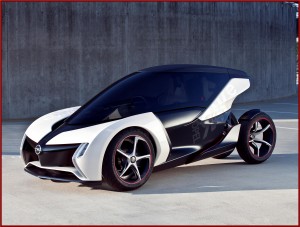
Micro-cars or quadracycles retain advantages that de-contented bigger cars cannot offer, including ease of use in crowded cities.
While there is a clear emerging global trend of rising demand for small and inexpensive cars, regulations are increasing their costs. Since 2010, supply by automakers has been growing as they offer products in the range of €10,000 or about $13,000. Some vehicles in this price range are micro-cars, such as the Piaggio NT3, Renault Twizy ZE, Tata Nano, and Opel Rak-e concept, all unheard of in the United States. However, there are two A-segment vehicles playing in this space, the Skoda Citigo and Daimler Smart ForTwo, which is on sale in the U.S. with limited success thus far.
According to Frost & Sullivan research, the so-called micro-cars are expected to grow to nearly 280,000 units in Europe alone by 2017, which includes quadricycles, as well as the newly produced sub-A segment vehicles. The European Commission has already begun increasing regulations with even stricter safety and emission levels for micro-cars. The resulting addition in seat belts, airbags, reflectors, cross protection beams, and better bumpers is increasing their cost.
One strategy to compete here has automakers trying to “de-content” their A-segment vehicles, including the VW Up! and Toyota iQ, to have an entry into the micro-car market with their smallest vehicle already in production that meet emission and safety regulations.
Another strategy sees big cars such as the Dacia Duster in the compact SUV category that have been engineered to be priced around the €10,000 to garner sales from micro-car or small car customers who want to migrate to big cars with, well, smaller costs.
Micro-cars retain advantages that the Dacia Duster and its ilk cannot offer, though. Micro-cars are designed for congested mega cities and targeted at Gen-Y consumers (20 to 30 years old, and the fastest growing segment in the workforce) who are interested in alternative mobility, including car sharing. Traditional car sharing companies have added these small micro-cars to their fleets in 2012.
So far, more than 35 micro-cars have been displayed at various auto shows. While the prices for many of them have not been revealed, other electric micro-car introductions are expensive with high battery or components costs. The new Mahindra Reva e2o launched in India on18 March 2013, priced at €8,000-10,000. The European market version is expected to be priced at €10,000.

